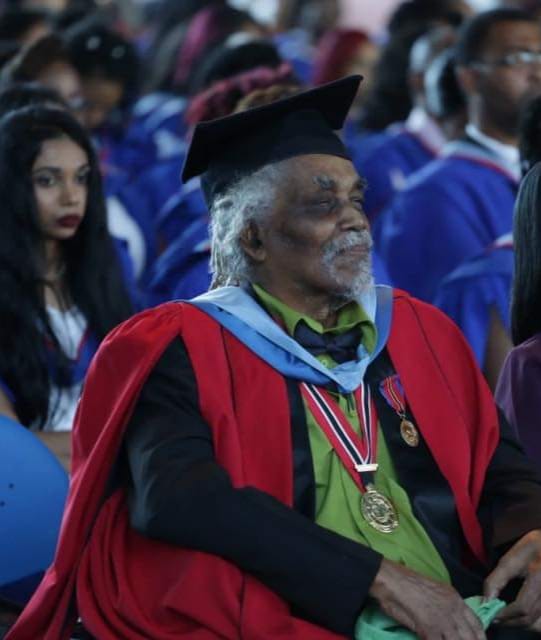Steelpan’s brightest star

TO LIST the accomplishments of Tony Williams, who died on Tuesday at the age of 90, is to largely tell the story of steelpan.
That list begins with the fact that Mr Williams led what some consider the finest steelband ever, North Stars, a band whose victory at the country’s inaugural Panorama competition set the tone for a melody still heard today. (After the first competition in 1963, North Stars also won Panorama in 1964.)
The list continues with the fact that Mr Williams is credited with the invention of the standard tenor pan (which he initially called the “spider web pan” because of the pattern of notes he laid out in a cycle of fourths and fifths to enhance tonality).
The motif of creative brilliance is further carried by the fact that he was the person who introduced oil drums to the background pans, the bass and cello. According to pan historian Dr Kim Johnson, biscuit drums were used previously.
Mr Williams also removed the straps around the necks of players, replacing them with stands and placing pans on wheels. He introduced multiple pans.
“In a sense, he was the father of the modern steel orchestra,” said Dr Johnson this week.
Tony “Muffman” Williams was born on June 24, 1931. He lived at Nepal Street, St James, and attended Mucurapo Boys’ RC School. He is said to have tuned his first pan at 13 and played with a St James band, Five Graves to Cairo.
Then, however, he followed the light, joining what would later become Sun Valley and eventually arrived at North Stars where he became arranger, tuner and welder.
Mr Williams was meticulous in his passion for pan, at times being a strong advocate for a more scientific study of pan production, raising issues about the carbon content of the steel used to make pan, the tempering of the steel by burning and the impact of the absorption of oxygen during the process.
He had a direct role in forging the destiny of the instrument, but for all his musical talents, he was not a showman, nor a flashy promoter of his own achievements. So, though he was awarded the country’s highest award, the Order of the Republic (ORTT) in 2008, and later an honorary doctorate, Mr Williams was largely one of the country’s unsung heroes, someone whose contributions were recognised primarily by the niche of the musical fraternity.
To observe that Mr Williams also had mental health issues which may have affected his ability to engage with people, or to create or make use of certain kinds of opportunities, is not to lessen but, if anything, to underline his achievements.
It is to be hoped this brightest of stars was aware of the light he cast among his peers and beyond.


Comments
"Steelpan’s brightest star"